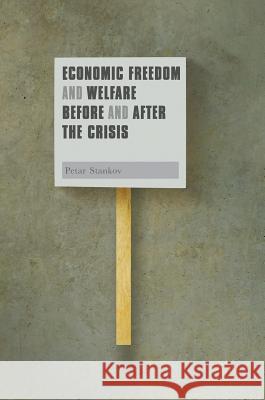Economic Freedom and Welfare Before and After the Crisis » książka
topmenu
Economic Freedom and Welfare Before and After the Crisis
ISBN-13: 9783319624969 / Angielski / Twarda / 2017 / 172 str.
This book offers an extensive review of market-oriented economic reforms since 1970, and considers the question of whether more liberal economic policy yields greater social welfare.











